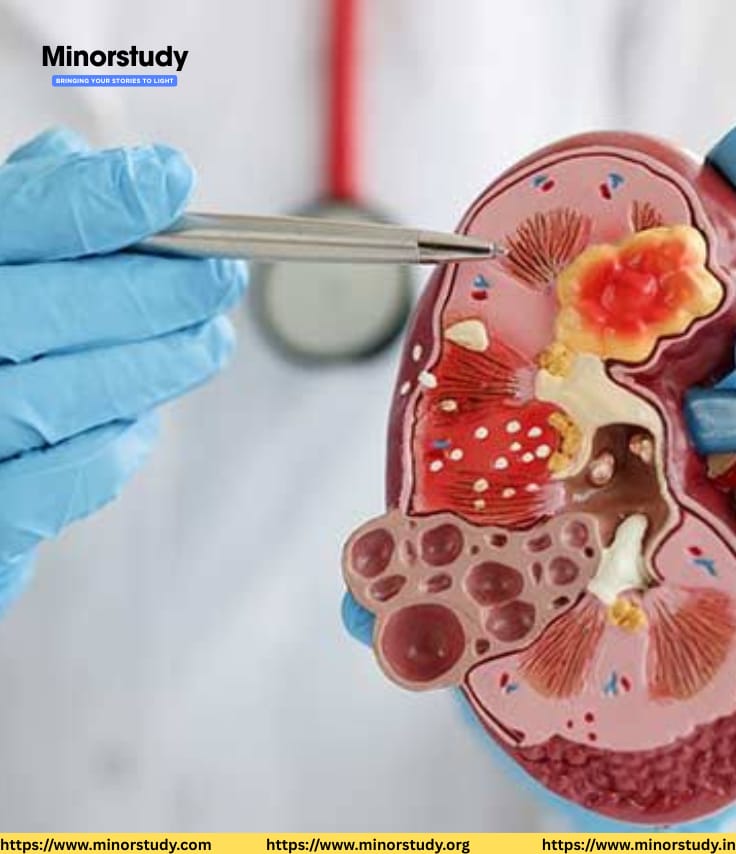🚨 Chronic Kidney Disease: The Silent Crisis You Can’t Ignore
Chronic Kidney Disease (CKD) is more than a medical condition—it’s a global health challenge, affecting millions silently. While often undetected until advanced stages, CKD progressively damages kidney function and can lead to life-threatening complications like heart disease or kidney failure.
- 🧬 What is Chronic Kidney Disease?
- 🕰️ History and Evolution of Kidney Disease Awareness
- 📌 7 Alarming Facts You Should Know About CKD
- 📅 Timeline of Major Developments in Kidney Health
- 📖 Significance of Understanding CKD
- 💬 Wishing and Awareness Messages
- 🙋 Frequently Asked Questions (FAQs)
- Q1. What causes CKD?
- Q2. Is CKD curable?
- Q3. What are early signs of CKD?
- Q4. How is CKD diagnosed?
- Q5. How can one prevent CKD?
- 🩷 Importance in Our Life and Society
- 🌿 Observance: World Kidney Day
- 📌 Important Takeaways
- 💡 How You Can Make a Difference
- 🏁 Conclusion: Let’s Not Wait for the Alarm
This article offers a comprehensive, human-centric exploration of CKD—its history, scientific facts, timeline, significance, ways to raise awareness, and its profound impact on daily life and society.
🧬 What is Chronic Kidney Disease?
Chronic Kidney Disease is a gradual and irreversible loss of kidney function over time. The kidneys, vital organs responsible for filtering waste and excess fluids from the blood, become progressively impaired, often without obvious symptoms in the early stages.
There are five stages of CKD, with stage 5 known as end-stage renal disease (ESRD), which may require dialysis or kidney transplantation.
🕰️ History and Evolution of Kidney Disease Awareness
Ancient Era: Early Ayurvedic and Egyptian texts refer to urinary and kidney-related ailments, though without a clear understanding of CKD.
17th Century: Nephrology began to emerge as a science with early identification of kidney structure.
1836: Richard Bright, an English physician, described “Bright’s disease”—one of the first clinical recognitions of chronic kidney disease.
20th Century: Dialysis was developed, and kidney transplantation emerged as a treatment option.
21st Century: Rising diabetes, hypertension, and lifestyle issues led to a global surge in CKD cases. Awareness days and WHO involvement began increasing.
📌 7 Alarming Facts You Should Know About CKD
🩺 Over 850 million people globally live with some form of kidney disease (International Society of Nephrology).
🇮🇳 India ranks among the top countries with a high CKD burden—1 in 11 people affected.
🧂 Diabetes and high blood pressure cause two-thirds of CKD cases worldwide.
😷 CKD often shows no symptoms until advanced stages.
💉 Over 2 million people receive dialysis or transplantation worldwide.
🚫 There is no permanent cure, only management or replacement therapy.
💔 CKD increases the risk of heart attacks, strokes, and early death significantly.
📅 Timeline of Major Developments in Kidney Health
| Year | Milestone |
|---|---|
| 1836 | Dr. Richard Bright identifies Bright’s Disease (early CKD) |
| 1943 | First successful dialysis treatment |
| 1954 | First successful kidney transplant in the US |
| 1960s | Widespread adoption of dialysis |
| 2006 | World Kidney Day established |
| 2020s | Rise in home dialysis, AI in nephrology, and CKD prevention campaigns |
📖 Significance of Understanding CKD
CKD is not just a medical condition—it’s a societal and personal challenge. Its progression is slow and sneaky, often going unnoticed until it’s too late. Here’s why it matters:
1. Health Impact
CKD leads to fatigue, anemia, bone disease, fluid retention, and heart complications.
It increases the risk of hospitalization and reduces life expectancy.
2. Economic Burden
Dialysis is expensive and lifelong.
Kidney transplants require surgery, lifelong medication, and post-care.
Affects productivity and leads to job loss or financial distress.
3. Psychosocial Strain
Patients face mental health issues, social isolation, and anxiety.
Caregivers experience stress and fatigue.
4. Global Concern
Non-communicable diseases like CKD are becoming leading causes of death, especially in middle- and low-income countries.
💬 Wishing and Awareness Messages
“This World Kidney Day, let’s not take our health for granted. Stay hydrated, stay aware!”
“Healthy kidneys = A healthy life. Let’s fight CKD together.”
“Care for your kidneys before it’s too late. Prevention is powerful.”
“A simple test can save your life. Early detection matters!”
“CKD is silent—but you don’t have to be. Speak up and spread awareness.”
🙋 Frequently Asked Questions (FAQs)
Q1. What causes CKD?
CKD is usually caused by diabetes, high blood pressure, repeated kidney infections, or inherited conditions like polycystic kidney disease.
Q2. Is CKD curable?
There is no cure, but the disease can be managed or slowed down with early detection and treatment.
Q3. What are early signs of CKD?
Unfortunately, early stages often show no symptoms. Later signs include fatigue, swelling in legs, and changes in urination patterns.
Q4. How is CKD diagnosed?
Through blood tests (creatinine, GFR), urine tests, and imaging. Regular checkups are essential if you’re at risk.
Q5. How can one prevent CKD?
Control blood sugar and pressure
Stay hydrated
Avoid overuse of painkillers
Maintain a healthy diet
Avoid smoking and excessive alcohol
🩷 Importance in Our Life and Society
Chronic Kidney Disease affects not just individuals, but families, communities, and economies. Here’s how:
👨👩👧👦 In Daily Life
Affects diet, exercise, and mental state
Requires regular hospital visits, medications, and monitoring
Limits freedom to work, travel, or live independently
🏥 In Healthcare Systems
Increases demand for dialysis centers and nephrologists
Adds pressure to already stretched healthcare resources
💼 In Workplaces
Results in absenteeism, reduced productivity, and increased healthcare insurance costs
🌿 Observance: World Kidney Day
World Kidney Day is observed annually on the second Thursday of March, initiated in 2006 by the International Society of Nephrology (ISN) and International Federation of Kidney Foundations (IFKF).
🔍 Purpose:
Raise awareness about kidney health
Encourage preventive behavior
Educate about risks and treatment options
Each year, it is observed with a new theme like “Kidney Health for All”, with global campaigns, screenings, seminars, and social media drives.
📌 Important Takeaways
CKD is preventable and manageable.
Early detection can save lives and kidneys.
Lifestyle plays a major role.
It impacts millions silently.
Public health systems must prioritize it.
💡 How You Can Make a Difference
✅ Get tested if you have diabetes or hypertension
✅ Reduce salt, sugar, and processed food
✅ Exercise regularly
✅ Stay informed and share knowledge
✅ Participate in awareness programs
Even small actions like drinking more water, helping a friend get tested, or attending a World Kidney Day event can make a big difference.
🏁 Conclusion: Let’s Not Wait for the Alarm
Chronic Kidney Disease is one of the deadliest yet most overlooked health threats in the world. It’s not dramatic or sudden—but it’s relentless. The pain it brings is silent, the treatment lifelong, and the consequences widespread.
But here’s the hopeful part: It can be prevented. With timely testing, healthy habits, and awareness, you can delay or even avoid it.
“Protect your kidneys—they’re silently working every moment, keeping you alive. Don’t wait until they stop.”
Let’s fight this silent crisis with loud awareness, kind support, and strong choices.









Acute Pharmacy supports better living with fast service, quality medicine, and professional care.
AcutePharmacy.com is built to serve patients with care, quality, and commitment across every order.